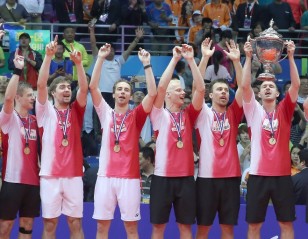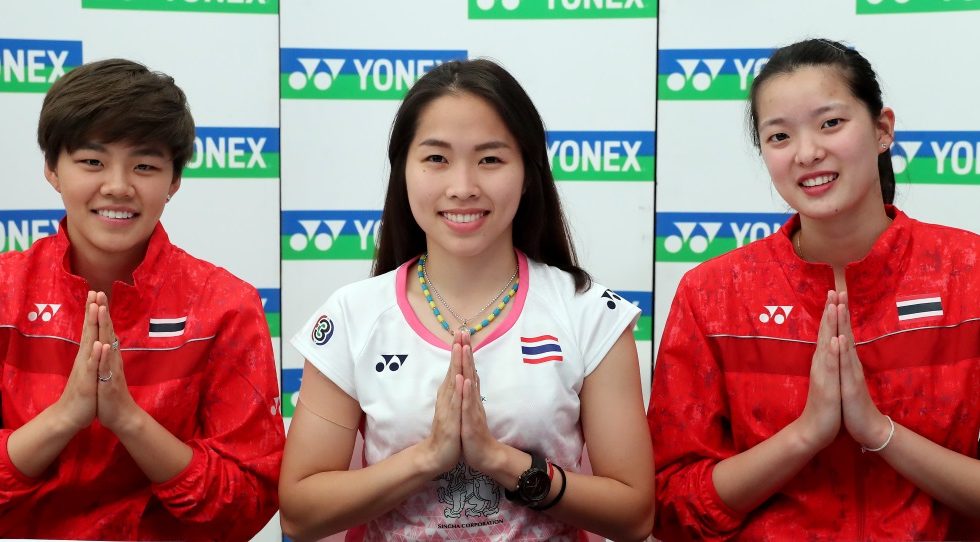
Bangkok Beckons!
It was in 1976 that the Thomas Cup last visited Thailand.
In the four decades since then, badminton has evolved from a sport dominated by a few countries, to one in which the field is more competitive than ever before. It is particularly significant that, as the event in its current format – the TOTAL BWF Thomas & Uber Cup Finals – again makes its appearance in Bangkok, the hosts are among the title contenders in both the men’s and women’s tournaments.
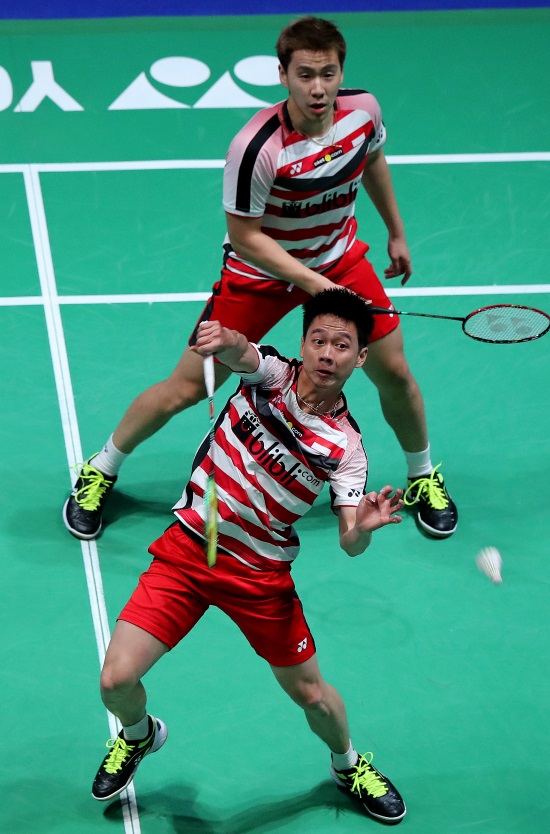 Thursday 22 April saw Thailand drawn into Group B of both the Thomas and Uber Cup; while the men will battle with Indonesia, Korea and Canada, the women will face Chinese Taipei, Germany and Hong Kong. Boasting a wealth of talent that includes the likes of Tanongsak Saensomboonsuk, Khosit Phetpradab, Dechapol Puavaranukroh and Kittinupong Kedren in the men’s, and Ratchanok Intanon (featured image), Nitchaon Jindapol and Sapsiree Taerattanachai in the women’s team, Thailand would want to capitalise on the rare opportunity of playing the Thomas & Uber Cup Finals on home soil and going one better than their Thomas Cup team of 1961, who lost to Indonesia in the final.
Thursday 22 April saw Thailand drawn into Group B of both the Thomas and Uber Cup; while the men will battle with Indonesia, Korea and Canada, the women will face Chinese Taipei, Germany and Hong Kong. Boasting a wealth of talent that includes the likes of Tanongsak Saensomboonsuk, Khosit Phetpradab, Dechapol Puavaranukroh and Kittinupong Kedren in the men’s, and Ratchanok Intanon (featured image), Nitchaon Jindapol and Sapsiree Taerattanachai in the women’s team, Thailand would want to capitalise on the rare opportunity of playing the Thomas & Uber Cup Finals on home soil and going one better than their Thomas Cup team of 1961, who lost to Indonesia in the final.
The Indonesians, meanwhile, have suffered a steady slide since their glory days of the Sixties and Seventies – the period in which they won most of their record haul of 13 Thomas Cup titles. They reached the final of the last edition in Kunshan, losing 3-2 to Denmark, and will be confident they have a more balanced team this time around. Their singles players have matured and the doubles is led by the best combination in the world – Marcus Fernaldi Gideon and Kevin Sanjaya Sukamuljo.
The team they lost to in that final – Denmark – are in Group D with Malaysia, Russia and Algeria. The Danes created history in Kunshan, becoming the first European team to win a world team championship; with much the same team in Bangkok, they have the ability and the experience to go all the way.
Nine-time winners China, in Group A, do not quite have the formidable look that earlier Chinese teams sported. Nevertheless, with Lin Dan, Chen Long and Zhang Nan in their ranks, they have the ability to reverse recent history, China’s last title coming in 2012. India, France and Australia are their group-mates, and the Indians, with strong singles and at least one dangerous doubles pair, will be the ones everyone will be wary of taking on.
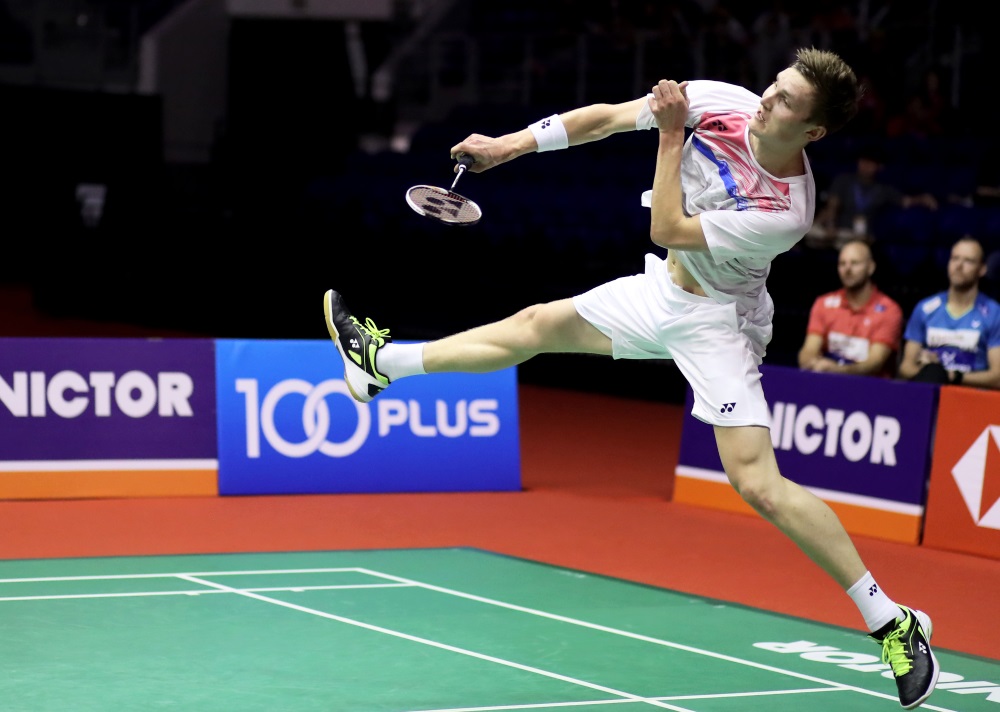
That leaves Group C – with Chinese Taipei, Japan, Germany and Hong Kong. Japan has a wealth of singles talent that has blossomed in recent months – Kenta Nishimoto and Kazumasa Sakai being the notables – but a lot will depend on Kento Momota, who showed on Sunday that he is back to his best after beating Shi Yuqi, Chou Tien Chen, Lee Chong Wei and Chen Long on consecutive days at the Badminton Asia Championships.
With strong doubles pairs (Takeshi Kamura/Keigo Sonoda and Takuto Inoue/Yuki Kaneko), Japan appear to have a good enough team to repeat their 2014 success. But they will need to avoid early mishaps against Chinese Taipei and Hong Kong. Chinese Taipei have a strong all-round unit, while Hong Kong can pull of a surprise or two against higher-rated squads.
In the Uber Cup, top seeds Japan have the personnel that will be envy of all other teams: with six players ranked in the Women’s Singles top 20, and three Women’s Doubles pairs in the top 10, the East Asians are spoilt for choice.
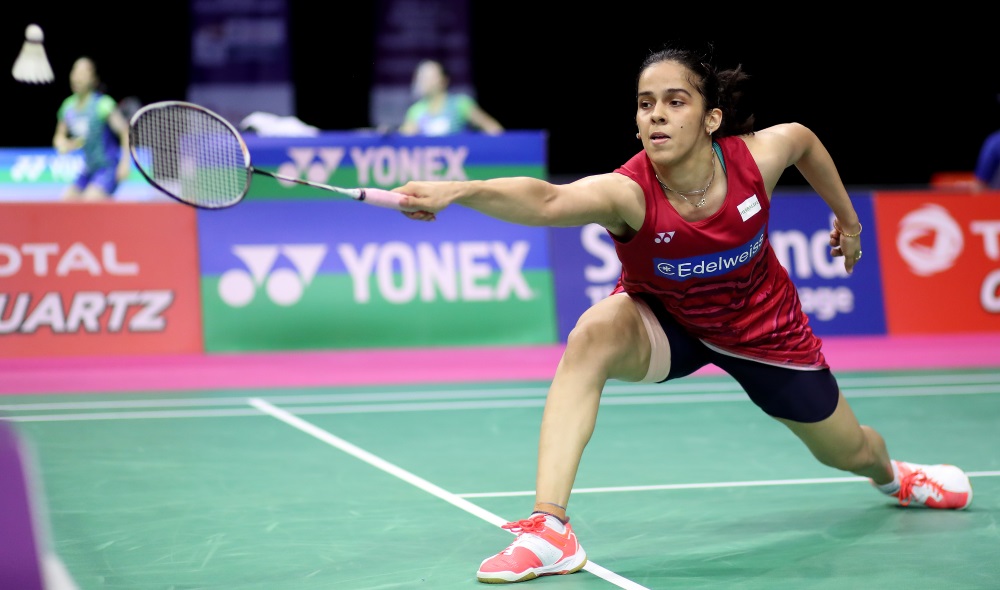
Japan are the team that could achieve what only China and Indonesia have managed – to hold both titles at the same time.
Japan’s women are in Group A with Canada, Australia and India – who are still heavily reliant on Saina Nehwal and Pusarla V Sindhu.
Second seeds China, in Group D, are still in a rebuilding phase after the retirement of senior players in 2016, but their group-mates
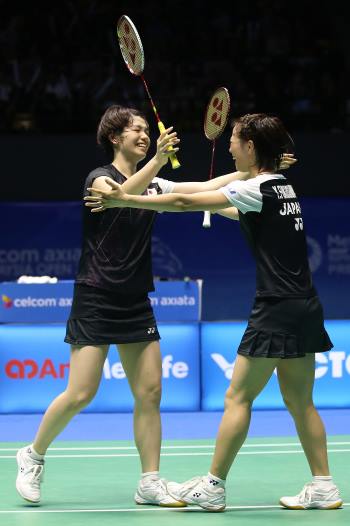 Indonesia, France and Malaysia aren’t likely to stop them making the quarter-finals. The young Chinese team will feel the weight of history – China have made every final since 1984, winning all but three. Anything less than another final will therefore be seen as a jolt for He Bingjiao, Chen Yufei, Chen Qingchen, Jia Yifan and their compatriots.
Indonesia, France and Malaysia aren’t likely to stop them making the quarter-finals. The young Chinese team will feel the weight of history – China have made every final since 1984, winning all but three. Anything less than another final will therefore be seen as a jolt for He Bingjiao, Chen Yufei, Chen Qingchen, Jia Yifan and their compatriots.
Thailand and Korea are the big names in groups B and C respectively. While Thailand have the depth to negotiate group-mates Chinese Taipei, Germany and Hong Kong to go far in the draw, Korea – with Sung Ji Hyun and Lee Jang Mi in singles and Lee So Hee, Chang Ye Na, Shin Seung Chan, Jung Kyung Eun and Kim Hye Rin in doubles – will look to do what their mixed team did at the Sudirman Cup last year.
The last edition of the Thomas Cup in Kunshan had everything that makes the team events special – heroic performances by underdogs; upsets; nail-biting finishes. The event was marked by the quarter-final loss of China to a stunned home crowd in the Thomas Cup; the stirring triumph of Denmark by 3-2 margins in the quarter-finals, semi-finals and finals; and plucky performances by India and Korea in the Uber Cup. All indications are that the 2018 edition could lay out a similarly sumptuous feast.
Thomas & Uber Cup News
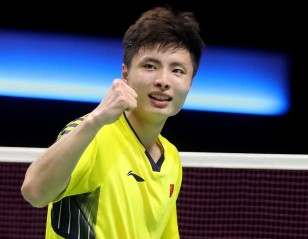
China’s Young Heroes – Thomas Cup Review 13 June 2018
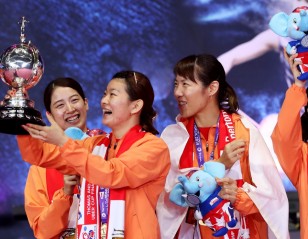
Japan Stamp Supremacy – Uber Cup Review 8 June 2018

Title No.10 for China – Thomas Cup Final: TOTAL BWF Thomas &... 27 May 2018
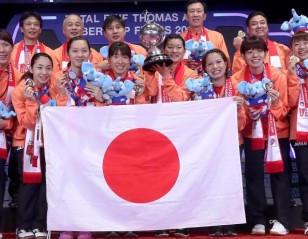
Women of the Rising ‘Stun’! – Uber Cup Final: TOTAL BWF TUC... 26 May 2018
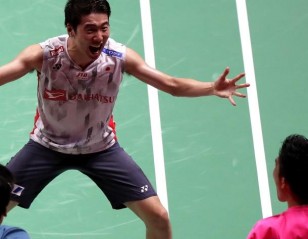
‘Tongue-Twisters’ Torment Titlists – Thomas Cup Semi-Finals: TOTAL BWF TUC Finals 2018 25 May 2018
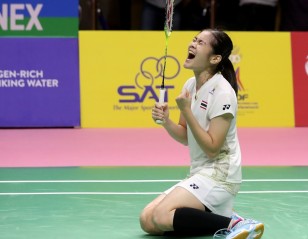
‘Uber’ Achievers! – Uber Cup Semi-finals: TOTAL BWF TUC Finals 2018 25 May 2018
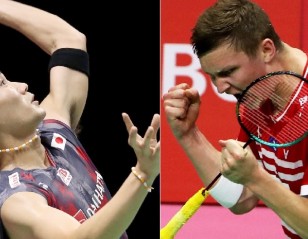
Denmark, Japan into Semis – Day 5 – Session 3: TOTAL BWF... 24 May 2018
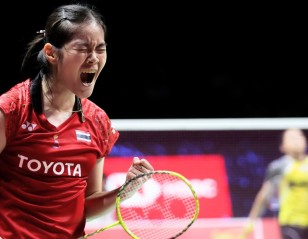
Emotional Win for Thailand – Day 5 – Session 2: TOTAL BWF... 24 May 2018
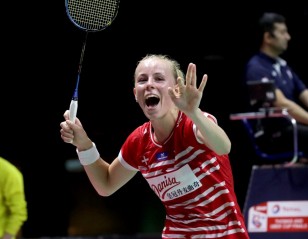
China, Korea Overcome Jitters – Day 5 – Session 1: TOTAL BWF... 24 May 2018

Jorgensen Delivers – Day 4 – Session 3: TOTAL BWF TUC Finals... 23 May 2018
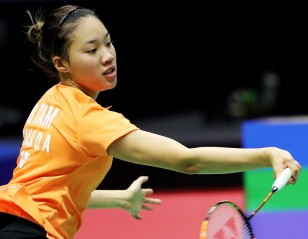
Canada Through to Quarters – Day 4 – Session 2: TOTAL BWF... 23 May 2018
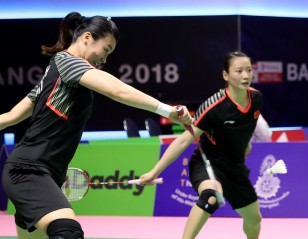
China Hold Firm – Day 4 – Session 1: TOTAL BWF Thomas... 23 May 2018
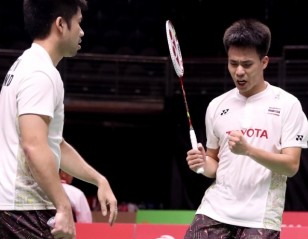
Resilient Indonesia – Day 3 – Session 3: TOTAL BWF TUC Finals... 22 May 2018
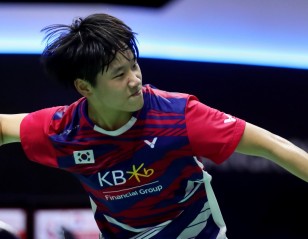
Schoolgirl to the Rescue – Day 3 – Session 2: TOTAL BWF... 22 May 2018

German Scare for Japan – Day 3 – Session 1: TOTAL BWF... 22 May 2018
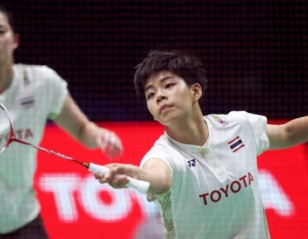
China, Thailand Look Ahead – Day 2 – Session 3: TOTAL BWF... 21 May 2018
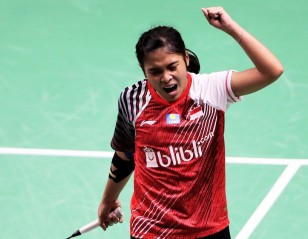
Indonesia Pass Malaysian Test – Day 2 – Session 2: TOTAL BWF... 21 May 2018
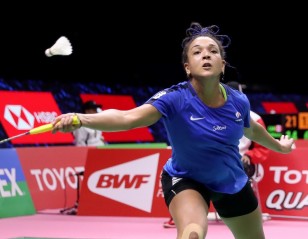
Debutants Relishing Experience – Day 2 – Session 1: TOTAL BWF TUC... 21 May 2018
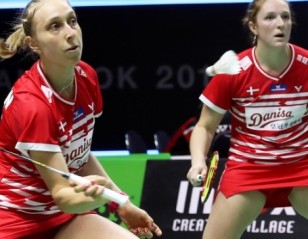
Korea Prevails – Day 1 – Session 3: TOTAL BWF TUC Finals... 20 May 2018
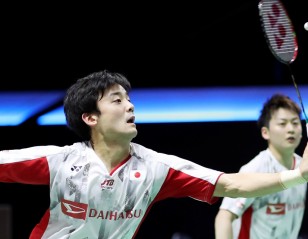
Japan Start Strong – Day 1 – Session 2: TOTAL BWF TUC... 20 May 2018

Corvee Stars in French Victory – Day 1 – Session 1: TOTAL... 20 May 2018
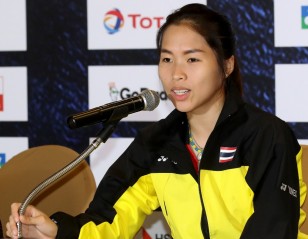
Banking on Home Support – TUC Finals 2018 19 May 2018

Defending Champions Confident Despite Setbacks – TUC Finals 2018 19 May 2018
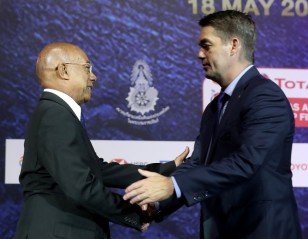
Honour for Fernandez, Sornprachum and Klutzke 19 May 2018
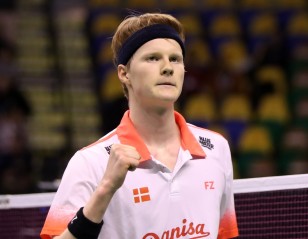
Strong Danish Line-up – Preview: Thomas Cup Squads 11 May 2018
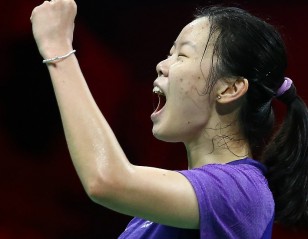
Li Xuerui Returns – Preview: Uber Cup Squads 9 May 2018
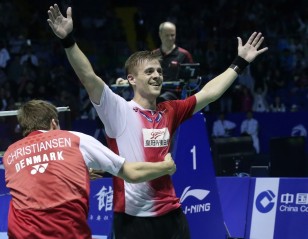
Indonesia, Japan Start ‘Thomas-Uber’ Action 12 April 2018
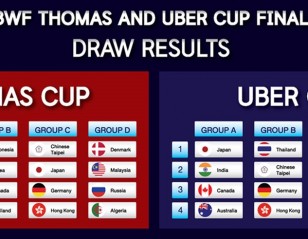
Japan in ‘Group of Death’ 22 March 2018

Hong Kong, France Qualify for TUC 2018 20 March 2018
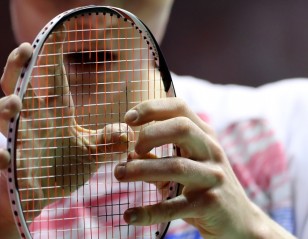
Fitness, Equipment in Focus at World Congress 4 March 2018
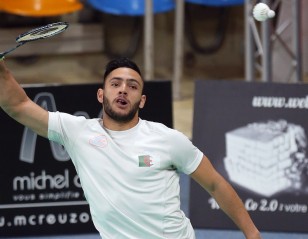
Algeria to Debut in Thomas Cup 26 February 2018
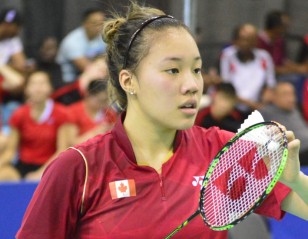
Canadian Supremacy – Finals: M&F Pan Am Team Championships 2018 19 February 2018
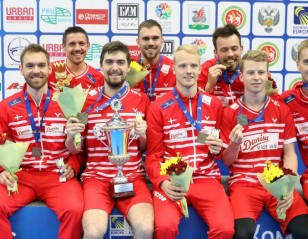
Denmark’s Reign Continues – Finals: 2018 European Men’s & Women’s Team Championships 19 February 2018

Peru Go Down Fighting – Day 3: M&F Pan Am Team Continental... 18 February 2018
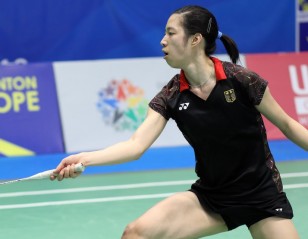
Germany in Title Bout – Day 5: 2018 European Men’s & Women’s... 18 February 2018
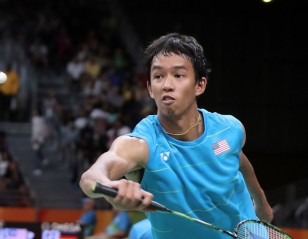
Jamaica, Peru in Semis – Day 2: M&F Pan Am Continental Team... 17 February 2018
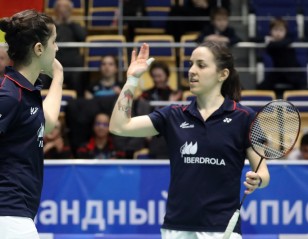
Spain Survive Turkish Challenge – Day 4: 2018 European Men’s & Women’s... 16 February 2018
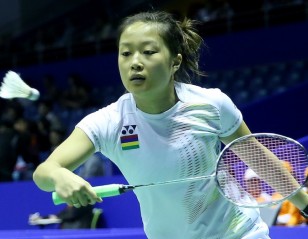
Algeria Make History – Finals: All Africa Men’s & Women’s Team Championships... 16 February 2018
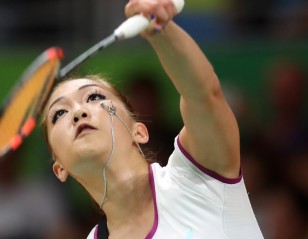
Tight Wins for Nigeria, Mauritius – Semi-finals: All Africa Men’s & Women’s... 15 February 2018
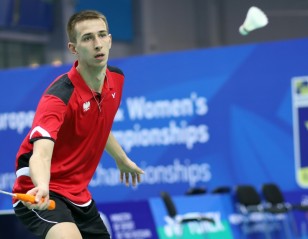
Poland Ease Past Portugal – Day 2: 2018 European Men’s & Women’s... 15 February 2018
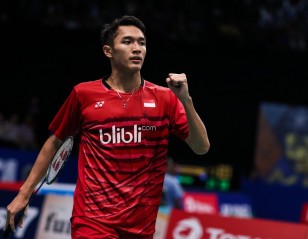
Indonesia, Japan Triumph – Finals: E-Plus Badminton Asia Team Championships 2018 12 February 2018
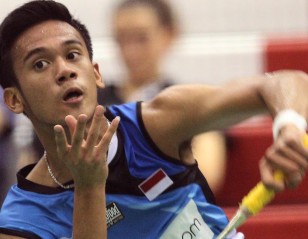
Kholik Stars in Indonesia’s Win – Semi-finals: E-Plus Badminton Asia Team Championships... 10 February 2018
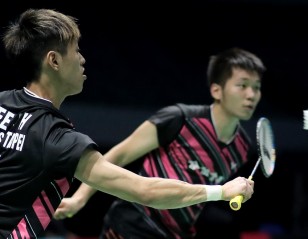
Chinese Taipei Outplay Thailand – Day 2: E-Plus Badminton Asia Team Championships... 8 February 2018
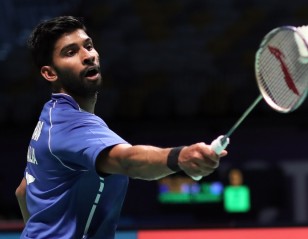
Australia Prevail in Thriller – Victor Oceania Team Championships 2018 7 February 2018
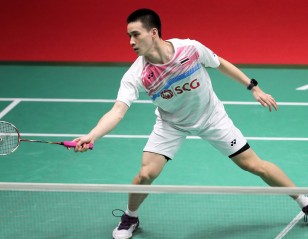
Close Win For Thailand – Day 1: E-Plus Badminton Asia Championships 2018 7 February 2018
